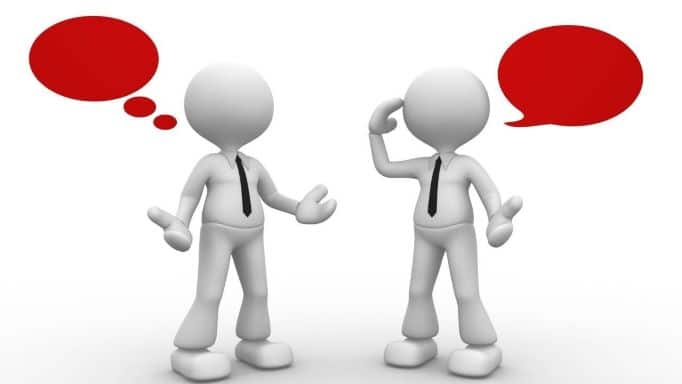
This is a contributed post. However, all opinions expressed in this post are based on my personal view.
There is no shortage of skepticism in the world we inhabit. If you can name an issue that has salience in the news or other media, you can probably find someone – usually a lot of someone – who will tell you that the issue is a non-issue. That it is overblown or even invented. There are even people who react in this way to talk of mental health conditions, some even arguing that depression isn’t a genuine illness.
Now, while some people push a skeptical, contrarian line for fun and profit, they also influence people and there are individuals out there who will genuinely push untrue, objectively harmful information. These people may even think they are being helpful by bringing “truth” to the world. If you find yourself in conversation with such a person, it might be tempting to get upset and rant at them – but in reality, a much better reaction is to present a counter-argument. Because, if people have arrived at what seems to them to be a logical conclusion, they can be talked around using logic, too. Below are some of the arguments you’ll hear, and how to counter them.
Myth: “Depression has only become an illness in recent times!”
The long form of this argument is that people who lived in ancient civilizations didn’t suffer from depression and that it is a modern medicalization of just feeling sad. This is just objectively untrue. Hippocrates, the father of medicine as concept, recognized the condition as “melancholia”. Abraham Lincoln is known to have suffered from depression, made suicidal statements, and suffered breakdowns in his twenties and thirties. The idea that it’s some modern invention to enrich doctors and psychiatrists is ahistorical, medically illiterate, and just plain factually wrong.
Myth: “People exaggerate their ‘condition’ to get drugs!”
There is a tendency to refer to medication for depression as “happy pills”, but as anyone who has been prescribed such pills can tell you, they don’t make you happy. For some people with depression, Prozac can limit the worst of their symptoms, but it won’t make you high – and if you don’t have depression, you’ll just feel ill if you take it. Not all ADHD medication is stimulant-based, and those that are cause side effects such as headaches and irritability. Newer options such as CBD oil can smooth out anxious and depressive symptoms but are specifically designed not to have the psychoactive effects that controlled drugs can. In short, if you fake a mental health condition to get “happy drugs”, you’re in for disappointment.
Myth: “Mental illness is a scam to sell more pills!”
People will argue that conditions such as social anxiety disorder, OCD, and ADHD are simply medicalizations of human characteristics such as shyness, scrupulosity, and forgetfulness respectively. The argument rests on the idea that if a condition can be invented, a treatment can be sold. The argument falls on the merits, though, as can be seen, if you look at brain scans from someone with a specific condition, and someone without. Yes, some people are just shy, tidy, or forgetful. Others exhibit these characteristics to the point where it actively damages their personal well-being; there is a difference. Medication, generally, lessens the problem but doesn’t remove it, so it’s not like there’s a placebo effect.
Mental illness is a stressful imposition on a person’s life, and having to deal with inaccurate speculation around it doesn’t make it easier. So being able to cut skeptics off with the facts is always a useful power to have.


